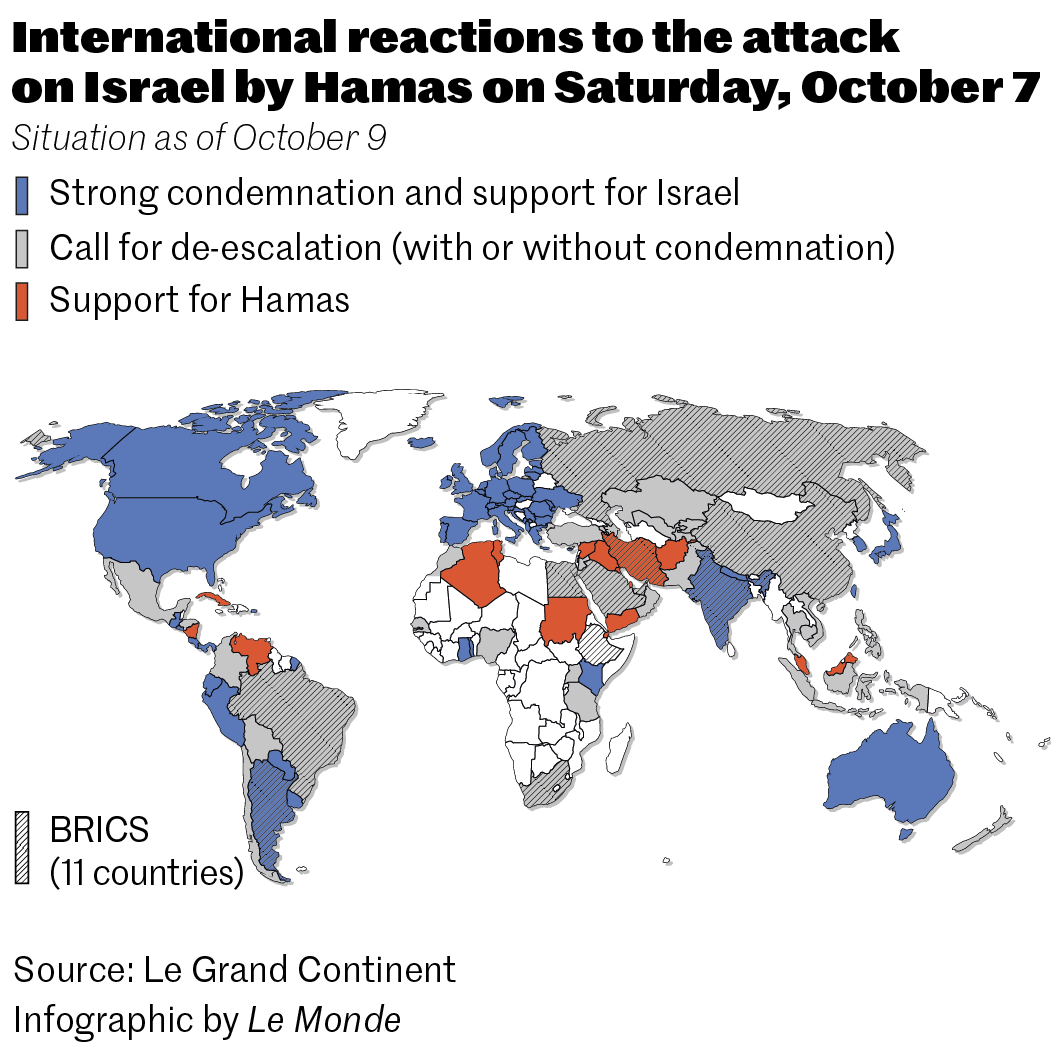
The war unleashed by Russia on Ukraine in 2022 saw the appearance of new cracks within the international community. Once again, these are being put to the test by the regional conflict triggered by the deadly Hamas offensive on Israeli soil on October 7.
Reactions to Russia's aggression led to talk of the Global South as a geopolitical entity, a generic term whose relevance has been questioned. This geopolitical grouping expressed itself by distancing itself from the pro-Ukrainian positions of the Western camp, justified by such fundamental principles of international law as respect for borders and territorial sovereignty.
Many countries in the Global South have disparaged this flexible positioning. The "double standards" argument has frequently been used to criticize an indignation deemed selective when it came to territories conquered by force. In the wake of Hamas's bloody coup, the Palestinian question, which has been losing ground given that it was once so pivotal within the now obsolete non-aligned movement, once again separates the Western bloc from the critical mass of the Global South.
Joint statement by five countries
The West was unequivocal in its condemnation of the bloodshed and kidnappings of Israeli soldiers and civilians perpetrated by Hamas militiamen, an organization long blacklisted as terrorist by the US and Europe. These condemnations also came with an expression of steadfast and united support for the Israeli authorities in their response. This position was illustrated by a joint statement issued by five countries – the United States, France, Germany, the United Kingdom and Italy – briefly referencing the "legitimate aspirations of the Palestinian people" without saying how they might be translated.
The West's position was shared by three members of the newly enlarged BRICS (Brazil, Russia, India, China and South Africa) group, a gathering of emerging countries representing 40% of the world's population and aspiring to represent the Global South. The first of these was India, the founding member of the BRICS, whose Prime Minister Narendra Modi immediately expressed his "solidarity" with Israel, with no mention of the plight of the Palestinians, as well as Argentina, which was admitted to the group at the last summit. The main candidates in Argentina's presidential election, scheduled for October 22, gave their unqualified support to the State of Israel.
Having been signatories to the 2020 Abraham Accords, which ushered in a new phase of normalization between Arab countries and Israel, the United Arab Emirates, which was admitted to the BRICS in August, initially denounced the escalation of violence without naming those responsible. It then went on to become the first Arab country to blame "attacks by Hamas against Israeli towns and villages near the Gaza Strip, including the firing of thousands of rockets at population centers." Sudan, another signatory to these agreements, chose the opposite camp.
You have 41.99% of this article left to read. The rest is for subscribers only.
